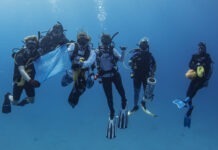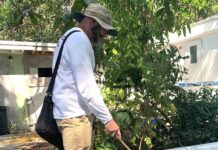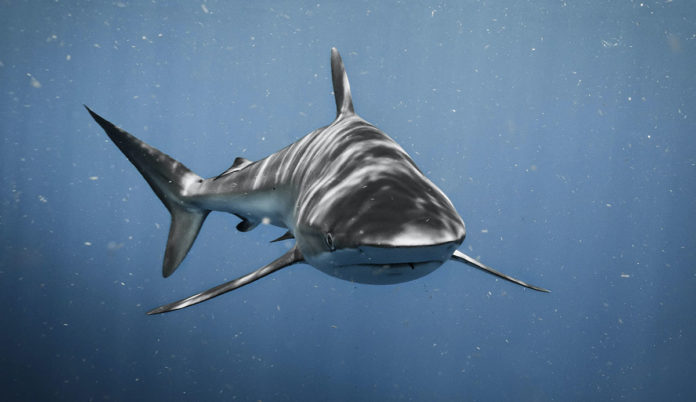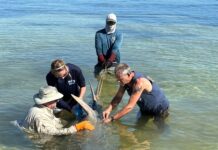Last week, a co-worker showed me a video on social media of a mother helping her son dangle a fish carcass over the back of a boat to feed a waiting nurse shark. As you might expect from a viral video, the poorly-balanced pair ended up in the water. I’m sure plenty of people laughed at it.
I’m not one of them. This needs to stop.
Social media might make it seem cool to go viral with the next mind-blowing animal encounter, and it certainly enables people to be celebrated for risky activities. (“Are you kidding me?” – sound familiar?) But feeding many wild animals, especially marine mammals, is already illegal. And according to the newly-proposed Restoration Blueprint for our sanctuary here in the Keys, it could soon become illegal for several more.
I can tell you that while I do have a degree in biology under my belt, I’m not a fish biologist by profession. But I have spent the last seven years as an avid diver and spear fisherman in Keys waters. And for the majority of that time, I was a professional animal behaviorist at Dolphin Research Center and a member of the facility’s manatee rescue team. So yeah, this hits close to home for me.
If you want to get technical with training terms, feeding wild animals is a perfect example of both classical and operant conditioning. It’s a simple concept: give an animal something that satisfies a basic need (a reinforcer), and you will not only assign a value to an object that, for that animal, doesn’t inherently have one – a boat, a human, a marina – but you’ll increase the frequency of the action the animal took to obtain that reward.
Maybe it’s a shark that’s willing to harass divers because the last one it approached gave up a fish, or learns to follow the sound of a boat motor because it was fed as part of a professional shark experience. Maybe it’s a manatee that travels into a marina in search of food or water and ends up butchered by a prop strike. In any case, the safety of these animals is at risk. I can promise you that one glimpse of an adorable sea cow with its internal organs visible after a prop strike will drive the point home: look, but leave them alone.
If you ever believe an animal is in trouble or malnourished, I understand it’s human nature to take its recovery into your own hands. But the Keys are rich with organizations – FWC, the Wild Bird Center, DRC, the Turtle Hospital and Dolphins Plus Marine Mammal Responder, just to name a few – ready and waiting for the call to assist an animal in need.
And it’s not just about animal safety. A few years ago, a shark sighting on a dive was a rare occurrence for my friends and me. Today, if I’m diving any sort of deep structure – or even the reef – I’m more surprised and on edge when I DON’T see one. We’ve modified our dive habits and gear significantly after being harassed on numerous safety stops by increasingly bold animals. Anecdotally, I can tell you I’ve yet to meet a spearo who hasn’t faced increased pressure from sharks in recent years.
Along the same lines, what do you think will happen if a shark approaches a diver who happens to be swimming in its usual feeding location, but gets confused when their new friend doesn’t dole out treats? The idea that businesses still exist that teach apex predators to associate humans with food is baffling to me, and a surface-level search of scientific literature will reveal the detrimental effects of these practices on fish.
I’m not going to sit here and pretend I don’t understand the temptation, or even that I’m an angel and have never done any of these things in years past. I have. But I’ve also seen the consequences. Please, take your pictures and videos when you see them, but leave these animals alone. It’s not cute, it’s not safe and it’s probably illegal.



















